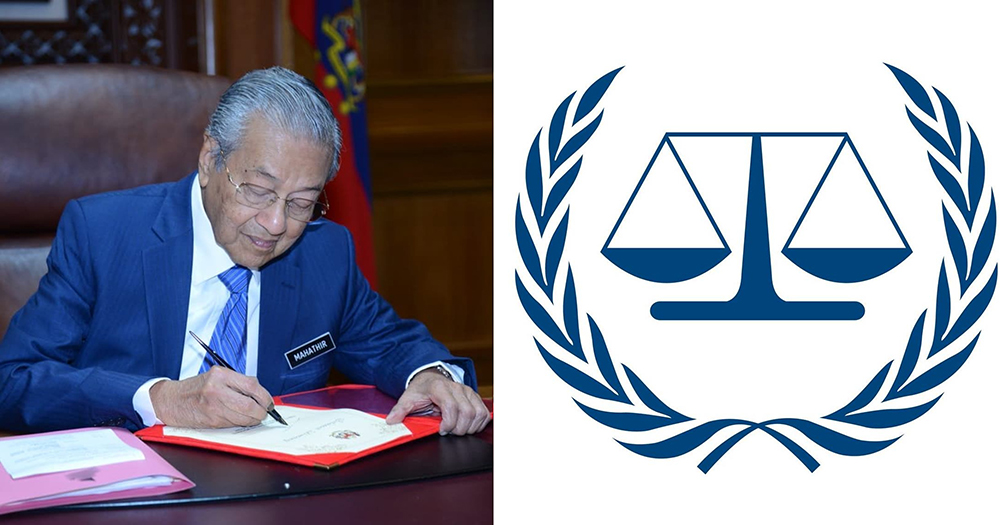Malaysia will withdraw from ratifying the Rome Statute of the International Criminal Court (ICC).
The ICC prosecutes genocide, war crimes, crimes of humanity and crimes of aggression.
The announcement was made by Malaysian Prime Minister Mahathir Mohamad on April 5, according to The Star.
Withdrawing on grounds of political confusion
Mahathir explained why Malaysia was withdrawing from ratifying the Rome Statute.
He was of the opinion that there has been a lot of political confusion about what signing it actually entailed, The Star added.
Certain parties with "vested interests" were causing confusion.
Mahathir said:
"There seems to be a lot of confusion about the Rome Statute, so we will not accede. This is not because we are against it, but because of the political confusion about what it entails, caused by people with vested interests."
When was the treaty ratified?
The treaty had been ratified by Malaysian Foreign Minister Saifuddin Abdullah on March 4, 2019, The Star reported.
Prior to the signing, Saifuddin had also informed Malaysia's Yang-di Pertuan Agong, Al-Sultan Abdullah Ri’ayatuddin Al-Mustafa Billah Shah, on the Cabinet's decision to accede to the Rome Statute of the ICC, the Malaysian Ministry of Foreign Affairs (Wisma Putra) stated.
Prior to announcing that Malaysia would no longer ratify the treaty, Mahathir initially stated on March 24 that only the good provisions of the Rome Statute would be accepted, in response to criticism.
Who has criticised the treaty?
Both the Sultan and Crown Prince of Johor have been some of the most vocal opponents of ratifying the treaty.
On March 10, the Crown Prince of Johor criticised the signing of the Rome Statute without getting consent from the Conference of Rulers, as it undermined the position of the Malaysian sovereigns, Malaysiakini reported.
And on March 23, the Sultan of Johor issued an even stronger statement accusing the Malaysian federal government of breaking the constitution by signing the Rome Statute, The Star highlighted.
In elaborating on his charge, the Sultan of Johor said that the signing, along with the ratification of the International Convention on the Elimination of All Forms of Racial Discrimination (ICERD) broke the law and was equivalent to treachery.
This was because such moves touched on the powers of rulers, Malay privileges, and the sanctity of Islam.
As per the Sultan:
"Any party that touches the rights and powers of a ruler or state government is breaking the law and can be considered traitors.
The action of the Federal Government to ratify ICERD and sign the Rome Statute is an action that is contradictory to the Federal Constitution because it touches on the power of the rulers and the special status of the Malays as well as the sanctity of Islam in the country."
What does the ICC actually do?
According to the ICC's website, the court's powers cover the four crimes of genocide, war crimes, crimes against humanity and the crime of aggression.
Additionally, it only prosecutes individuals, not groups or countries.
Jurisdiction over these crimes are exercised if it is committed by citizens of a country that acceded or were committed within a country that acceded.
The ICC's powers also apply in situations when a country not party to the Rome Statute declares that it accepts the ICC's jurisdiction, or when the UN Security Council refers a situation to the ICC.
Who has actually signed the treaty?
Thus far, 122 countries have signed the country.
Within Southeast Asia, however, only Cambodia has ratified the treaty.
Other countries not party to the treaty include China, India, Russia and the US.
Top image collage from Mahathir Mohamad Facebook and ICC Facebook
If you like what you read, follow us on Facebook, Instagram, Twitter and Telegram to get the latest updates.
